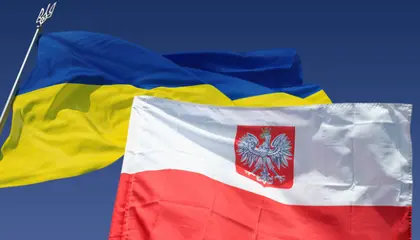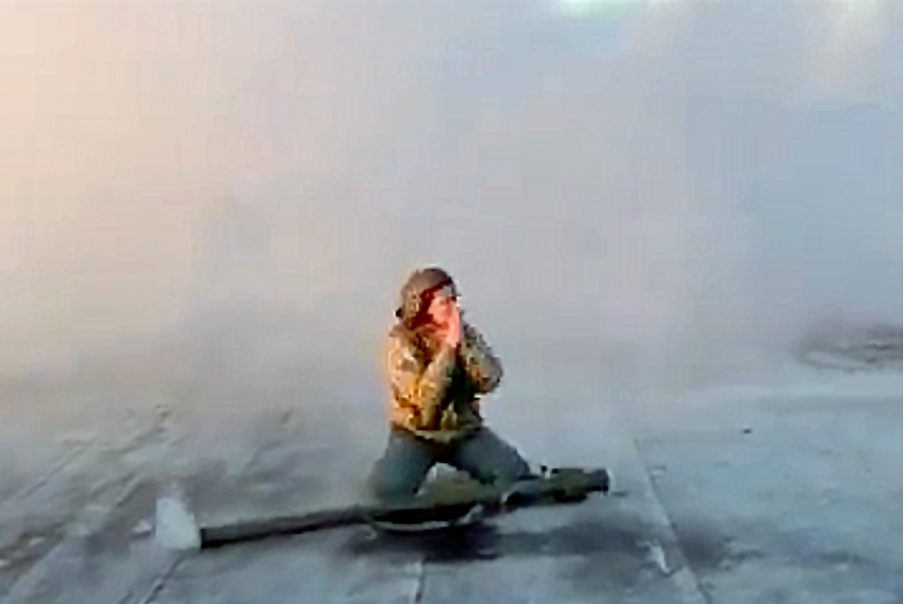Since Russia launched its full-scale invasion last year, Poland has been one of Ukraine’s staunchest allies, not only providing military and humanitarian aid, but offering shelter to millions of the country’s war refugees.
The relationship has been largely rock solid in most spheres of cooperation, but recent days have seen a spat develop over comments made by a presidential aide on Monday that have led to both countries summoning each other’s ambassadors.
JOIN US ON TELEGRAM
Follow our coverage of the war on the @Kyivpost_official.
What’s the spat about?
Grain. In the wake of Russia’s full-scale invasion, the EU dropped duties on Ukrainian exports to help Kyiv earn vital revenues.
While providing a vital boost to Ukraine, it had the effect of lowering grain prices in EU countries along the border of the global agricultural powerhouse, something Poland’s farmers have been understandably unhappy about.
This has led to protests, including the blocking of Polish streets with tractors when Zelensky visited the country in April.
Ahead of national elections this fall, Poland’s government can’t risk alienating the country’s rural voters and has been pressuring the EU to address the situation.
In June, Brussels agreed to allow Poland, Bulgaria, Hungary, Slovakia and Romania to restrict imports of grain from Ukraine through September.
In July, Poland urged the European Union to extend the grain import ban that is set to expire on Sept. 15, and threatened to otherwise maintain it unilaterally.

Russia’s War in Ukraine Has Consequences ‘Not Just for Ukraine, But for the Global Community’ – COP29
Why is it coming to a head now?
Polish presidential aide Marcin Przydacz said on Monday that Warsaw was prioritizing “the interests of Polish farmers” when it called on the EU to extend a ban last month.
This in itself is arguably a reasonable thing for a Polish presidential aide to say, but he then followed it up with: “Ukraine received a lot of support from Poland, it would be worth it, if it started to appreciate the role Poland has played for Ukraine in recent months and years.”
How did Ukraine respond?
Kyiv reacted by summoning Poland's ambassador to the Ukrainian foreign ministry on Tuesday.
“The statements about the alleged ingratitude of the Ukrainians... do not reflect reality and as such are unacceptable,” the Ukrainian side said in a statement.
Poland reciprocated by summoning Ukraine’s envoy, Vasyl Zvarych, to the foreign ministry but later said his deputy would be hosted on Wednesday as Zvarych is currently in Kyiv.
How serious is the spat?
President Zelensky is keen not to let it overshadow the otherwise excellent relationship between the two countries and while the subject of grain exports is hugely important and consequential, the spat is unlikely to foment any wider split.
In a post on Twitter, he wrote: “The nations of Europe know that the freedom of each individual is strongest when it is the common freedom of all. In Europe, we know how to unite and defend our values side by side, regardless of any seasons and moods, political trends, or personal ambitions.
“But now we see various signals that politics is sometimes trying to be above unity, and emotions are trying to be above the fundamental interests of nations. Ukraine is fighting for its freedom and the freedom of the whole of Europe, and we are grateful to every nation that helps.
“We greatly appreciate the historical support of Poland, which together with us has become a real shield of Europe from sea to sea. And there cannot be a single crack in this shield. We will not allow any political moments to spoil the relations between the Ukrainian and Polish peoples, and emotions should definitely cool down.
“The freedom and well-being of our nations, the values of our Europe and the victory over the common Russian enemy are above all.”
You can also highlight the text and press Ctrl + Enter






